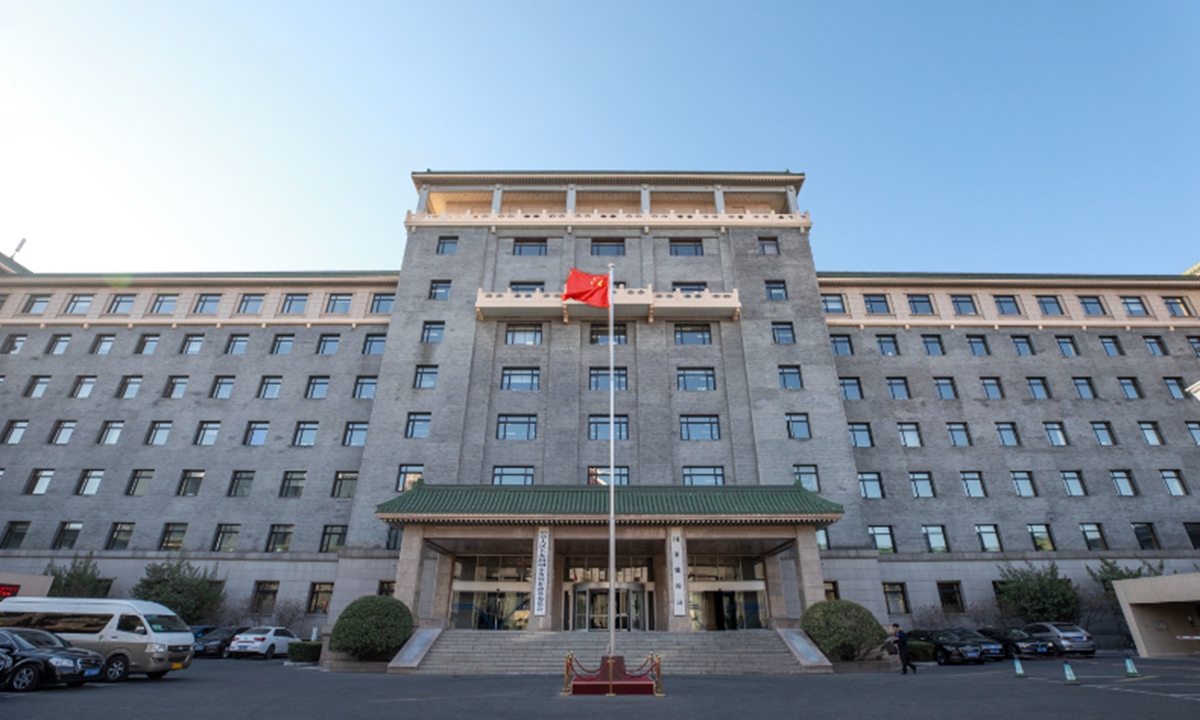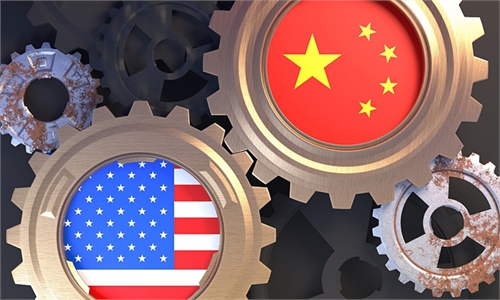China's NDRC supports high-quality enterprises to borrow long-term foreign debt, promote real economy

The National Development and Reform Commission File Photo: VCG
The National Development and Reform Commission (NDRC), China's top economic planner, on Tuesday issued a notice to support high-quality enterprises in borrowing medium- and long-term foreign debt to promote high-quality development of the real economy.
This move aims to further expand high-level opening-up, enhance cross-border investment and financing facilitation, and support high-quality enterprises in better integrating domestic and international markets and resources, the NDRC said in a notice on its website.
The goal is to fully leverage foreign debt funds to serve high-quality development. Efforts will be made to actively support high-quality enterprises that have significant industry status, have good credit, and play a leading role in promoting high-quality development of the real economy, the NDRC said.
The move underscores the Chinese government's momentum in encouraging quality enterprises to better coordinate their domestic and international funding resources to ultimately boost the real economy, experts said.
The notice relaxes standards for borrowing foreign debt, simplifies the review process, and strengthens supervision before, during, and after borrowing to reduce risks. Its implementation helps attract resources from both domestic and international markets, promotes international economic circulation, and thus enhances the vitality and potential of China's economic growth, Tan Xiaofen, a professor at the School of Economics and Management, Beihang University, told the Global Times on Tuesday.
These enterprises must comply with relevant regulations and macro-control policies, be among the top five in their industry, demonstrate strong financial performance, and maintain a good credit rating of investment grade (BBB or above) or a domestic credit rating of AAA. They should also have a clean record of debt repayment, no major violations, and receive a positive assessment from a registered accountant, according to the notice.
"It further defines high-quality enterprises in detail and encourages more eligible companies to borrow foreign debt," Tan said.
"The notice states that high-quality enterprises can submit a consolidated foreign debt quota application for both parent and subsidiary companies, allowing for phased use, which means combining quotas to facilitate better fund allocation. For example, a subsidiary can use the borrowing quota from the parent company which borrows foreign debt more easily," Tan said.
The main content of the notice includes defining standards for high-quality enterprises, simplifying review requirements and processes, continuously supporting and serving high-quality enterprises in their foreign debt financing and improving corresponding supervision during and after the process, according to the NDRC
The notice allows for "processing with missing documents" for applications for international commercial loans or overseas bond issuance. "This is a significant breakthrough, as previously full documentation was mandatory. The new regulation increases flexibility and speeds up the process," Tan said.
Since October 2023, the central government has implemented several financial facilitation policies. Corporate borrowing of foreign debt, especially medium- and long-term, is essential for China's use of foreign capital and expanding openness. Enhancing foreign debt management promotes balance of payments, economic and financial stability, and a new development paradigm, NDRC said as it introduced why it issued the notice at the press conference on Tuesday.
The measures, set to take effect on July 29, 2024 which will be valid until July 29, 2029, will oversee the borrowing of foreign debt by eligible companies through a review and registration system.
Medium to long-term foreign debt includes debt instruments issued by Chinese corporations as well as their overseas subsidiaries and branches. These loans could be denominated in local or foreign currency and have durations longer than a year. These include perpetual debt, medium-term notes and convertible bonds.
Global Times



